In my novel Above All Shadows Rides the Sun, the lead character and narrator Dylan Steffan, in his thirties, is a friend of musician John Denver. While looking at music from the era (1969 to 1976), I became fascinated with John Denver as an exemplary human being. My friends think I overdid a bit, but Denver really embodied my idealism and I think my enthusiasm about him is warranted.
Near Aspen, Colorado
April 5, 1969
I’ve been spending my Easter week in Snowmass, a town near Aspen, where my musician friend John Denver has been doing gigs.
He’s more than four years younger than me but I always draw inspiration from John. I consider him brilliant musically. Beyond that, I find him to be an exemplary individual with a splendid vision and noble values. But I do worry about him succeeding.
“Folk music seems to be on its way out, John. Looks like it won’t be the In-Thing of the 1970s.”
He’s unfazed. “You know what I’ll be singing about, Dylan: Humanity – how we are all one. Life – how it’s a journey of self-discovery and celebration. Love – the relief of forgiving others, the joy of serving others.”
“I hope it sells.”
“We human beings are more than we seem,” John resumes. “When we let the Spirit work through us, when we see the beauty around us, we can gracefully reach for higher ground. I’m convinced that one day people are going to listen to what I have to say, and what I have to say will be meaningful to them.”
“Spiritual meaning should be a big part of our most popular music,” I say. “So you’re going to sing about it in metaphors?”
“Well, I’ll sing about the sun and sunshine, about rivers and water, but I’ll really be singing about unity, hope, dreams, freedom, and how the Spirit whispers to us to love each other and to all live as sisters and brothers.”
“It’s the right view of life, John. What have you written lately?”
He picks up his guitar and begins playing his song “Rhymes and Reasons”. I listen as he sings poignantly of the innocent wisdom of children and how it can comfort us, clear up the clouds for us, bless us, and lead us by both hand and heart to a better life. Even when the sun’s fading, even when it’s cold as winter, even when cities crumble and towers fall, children can move us beyond our hopelessness and fear and revive our dreams.
I’m moved. “Very meaningful.”
“I’d become very strident about what was going on in the world and the need for change. I was beginning to define my beliefs. But in making all my pronouncements, I was indulging my ego. So this song tempered me. And this song defines me.”
“I do want things to come together for you, John.”
“I trust the cosmic flow.”
“Singing about rainbows is kinda risky. You’re an incredible optimist. And you cooperate with the Divine – you let what’s Divine and spiritual guide you through life. You’re so concerned about the human condition, and constantly aware of it. Your spirituality encompasses everyone and it encompasses all of Creation. I hope there is an audience for your message and your music. I hope there’s a very large audience.”
John smiles back at me. “Thank you. I don’t feel separate from any aspect or form of life. I feel part of it and I feel bound to it. There is a brotherhood here, and a sisterhood.”
“You’ll be like the Walt Whitman of Seventies music.”
“People will respond to what I have to bring them.”
Near Aspen
October 11, 1970
My cousin Yale Pendry and I are with John Denver. We’ve driven out from the home John has rented in Aspen to some rural acres he’s bought. John studied architecture in college and is developing his own house on the land.
His home is being built surrounded by hundred-year-old scrub oak. There’s snow on the slopes. We’re still here at sunset, sitting and looking out at the Roaring Fork River valley and the peaks beyond.
“The whole setting goes right into your soul,” John says. “As soon as I looked over this valley, I knew I’d found home. What I wouldn’t have given to see my days unfold here. I sit here when I’m not on the road, waiting for the sunset.”
“And all this before you turn 27,” I marvel.
“You’ve done so well with ‘Take Me Home, Country Roads’!” Yale exclaims. “That song’s on radio stations nationwide!”
“When I heard that song half-written back in December,” John tells us, “I flipped over it. By dawn I’d helped them finish writing it. We played it that night and the audience cheered and applauded for five minutes. Now the song’s getting into the national bloodstream.”
“The global bloodstream!” says Yale. “One million copies for the single. One million copies for the album. A platinum album. Congratulations, John!”
“I’m still one uncertain person,” John responds. “I’m always scared when I go out there. There isn’t a single night my hands aren’t shaking.”
“I had no idea,” I say. “I’ve seen you bantering with Merv Griffin on his show and I’ve seen you in concert. I didn’t suspect you were nervous.”
“I mask it with my granny glasses and bangs,” John replies. “And I hide behind my sparkly and cute façade.”
“It’s all working for you,” I tell him. “Along with your long hair and slightly Western twang.”
“But it’s more than a country-music appeal,” observes Yale. “It’s your emotional directness. The pure honesty in your voice. You wear your heart on your sleeve, without hesitation or shame. You’re down-to-earth, unpretentious. You embrace life with honesty. It’s like your voice has no secrets.”
“You hold us with that clear, pure sound,” I add, “and your warm rapport.”
“I’m pulling all that I have into what I’m doing,” John tells us. “I have a dream. I’ve been given gifts – my voice, my songwriting ability – and I want very much to do things with my gifts. I’m intrigued with continuing to develop my talents, exploring the outer limits. And I’ve broken through.”
The sunset has turned into night. There’s a full moon – enough moonlight that we could go cross-country-skiing. We look at the bright sky and all the natural beauty. Then we head back to the car and back to Aspen.
Denver
January 29, 1973
Yale and I are hanging out again with John Denver. You can hardly turn on the radio now without hearing John singing about walking amongst mountain forests and lakes and streams, seeking solitude and serenity and grace. And about seeing far amidst the silver clouds and starlight that alternate between being “softer than a lullaby” and meteor showers “rainin’ fire in the sky”.
John’s single “Rocky Mountain High” was released in October. “The heaviest radio rotation I’ve ever seen for a song!” says Yale. “Just flew up the charts!”
“I wanted to convey my sense of wonder about the Rockies,” John tells us, “and how exhilarating it is to be here, how free it feels.”
“You couldn’t have better captured our feelings about living in Colorado,” I say. “How did the song come about?”
“One moonless but clear night last summer,” he recalls. “Everyone else was napping, and I went out on a raft on the lake at ten thousand feet. Around midnight I stepped into a spot near the lake with a dozen aspen trees. The light from the stars was interwoven with the trees. And then a meteor went by. It got bigger, its trail stretching all the way across the sky, and burnt itself out.”
“Splendid,” I say.
“Then more meteors,” he adds. “I had my guitar with me, so I began to get creative. Over the next couple weeks, the song worked on me as I worked on the song. A guitarist friend came up with one guitar lick, and suddenly the whole rest of the song came together.”
I nod and smile. “Is that about how it usually goes for you?”
John nods. “When I write a song I’m trying to be honest, to be open, to really listen, to get in touch with a whole spectrum of moods. Then a line is on my tongue, and that one line brings other lines. I take my first draft, play the guitar and sing it, make changes as I learn the song. The song leads you. You discover your song, and that’s wonderful. You never control the song. You always discover it.”
“Well,” I reply, “it certainly all came together for you in ‘Rocky Mountain High’.”
John thinks for a moment. “If you’re really lucky, you’ll be able to sit by a lake at the foot of a mountain and hear a storm come and go. There is beautiful, beautiful music there. All you have to do is listen.”
Denver
June 7, 1976
Ren completes his eulogy and sits down. We are all nodding, soaking in what Uncle Riis has conveyed to us. Hearing Riis’s parting message, I’m even more glad that our family has asked my friend John Denver here today and that he’s accepted.
Getting up, grabbing his guitar, and walking to near Riis’s closed casket, John performs a new song he’s written called “Song of Wyoming”. He sings about the sun setting and the night falling peacefully on another day of horseback riding. He sings of canyons, cottonwoods, coyotes, and watching the river roll by. He sings of how the wind and the sage are heavenly and how he’s ready to fly up and away like a bird or an angel.
It would be an understatement to say that John has delivered what we needed. And so, with this song, each of us says our final farewell to Carmen del Castille Calderon and Riis Luke Evans, our family matriarch and patriarch for half a century.
Denver
July 4, 1976
Ren, Bronwyn, and Bodo join us. “John, congratulations on what you’ve achieved,” Bronwyn says. “Loved seeing you host the Emmy Awards.”
“The Greatest Hits album has sold 10 million copies here in the U.S.,” notes Ren.
“The bestselling album of our time,” enthuses Yale. “You’re the most popular musician in America.”
John reflects for a moment. “I’ve seen success ruin some people and destroy their life and I’ve been very nervous. But now I look back and see that I’ve been on a path that brought me to here. And I am what I’ve always wanted to be.”
“That’s great, John,” Ren says.
“It’s like you can’t do anything wrong musically!” Yale exclaims. “What’s next for you?”
“I’m acting in a movie with George Burns,” he tells us. “Called Oh, God.”
“Terrific,” I say.
“Wild!” exclaims Bodo.
“But more importantly, I’m cultivating myself as a global citizen,” John says. “I’m putting a couple million dollars a year into my charity, the Windstar Foundation. And I’m working on world hunger.”
I think for a moment. “It’s an extension of who you are, with some real funding behind it.”
He smiles and nods. “I think so, Dylan. I made a choice a long time ago to give myself completely to life, and to take advantage of every opportunity I can to do the work I have to do to make my contribution in this world. I have a vision of tomorrow out there working, a world that works, and that’s where I want to be.”
“Your charity work is an extension of your musical work, too,” observes Bronwyn.
“Songs of celebration and making a contribution to life and to the quality of life on this planet,” John says. “That commitment, that kind of ideal and purpose, is what I do with my music.”
“I gotta hand it to you,” Yale says.
“You’ve been true to yourself, and people have responded to you,” says Bronwyn.
“What I am doing is bringing people into my life, my views, my experience,” John says.
I nod. “And you’re making a difference in people’s lives, adding meaning for people, just like you aspired to do from the beginning.”
“It’s great that so many people are responding to you,” Bronwyn says. “Rainbows and sunrises and sunsets and lovely sunshine on our shoulders making us happy. And our spirits flying like eagles, and the forests and lakes and streams and silver clouds and starlight of the Rockies.”
I nod and smile. “Your dream, your gifts, your spirituality, your honesty, your passion – it’s all come together, John.”
“I’ve let the Spirit guide me and work through me,” John concludes, “tried to reach gracefully for higher ground. It’s been a journey of discovery and celebration.”
“Wonderful,” says Ren.
“But you’re a family of Quakers,” John demurs, “what am I telling all of you this for?”




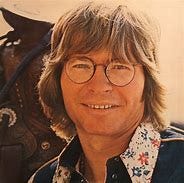
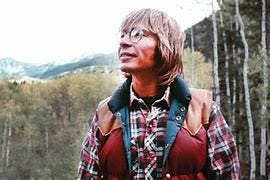
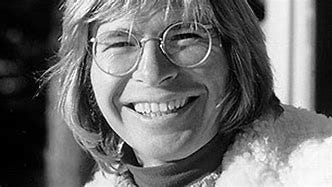
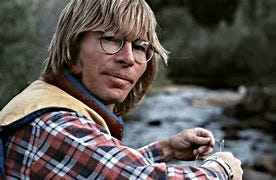
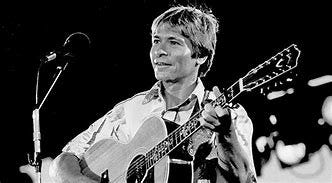
Now I'm singing John Denver songs- Annie is my favorite: "You fill up my senses..."
What's yours?
I'm shy about sharing personal stuff and self- promotion. In my attempt to do so, here it goes.
Your essay mentioned John's friends who were Quakers. He resonated with them- his music was his spirituality and his service to all beings.
I resonate with that, as it is my calling to serve all beings. Wildlands is authentic, as is John Denver's art/ music/ mission. I was told that I am "like a Quaker," (I have no association that I know of- it is a very high compliment, imho.) And, a subscriber/ creator of Steeped Stories @Mary Ann Rollano, said my poem, "I AM Nature, We Are Nature", reminded her of Ralph Waldo Emerson!
? piqued anyone's interest?
Me, whew, can't wait to not get any responses. My algorithms are low. Aaaand, my blood pressure is normal, my attitude is good. Lol...CRICKETS...
"Is this thing on?" (said Adam Sandler in what movie?)
A great read and thank you, Mike, for honoring John Denver! His aunt worked at an shop in Tulsa selling eye wear, and my husband, who is from there, knew her and said she looked just like him and was the nicest lady! I love John's spirit, his music and his message! He inspired my work, which has similar themes and missions.